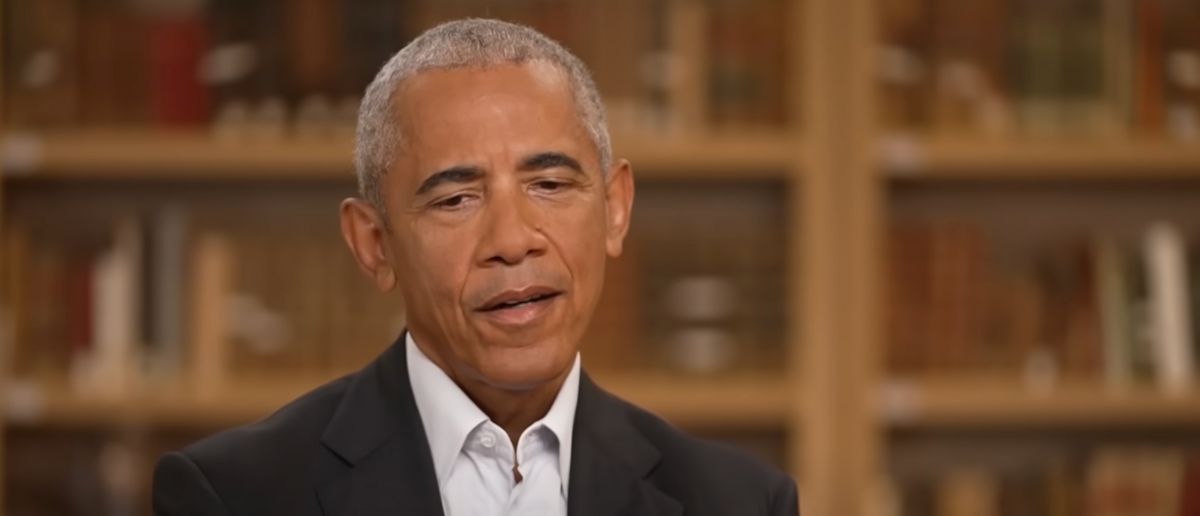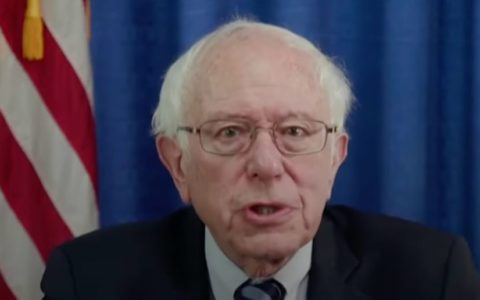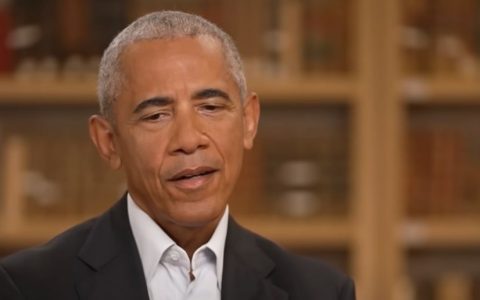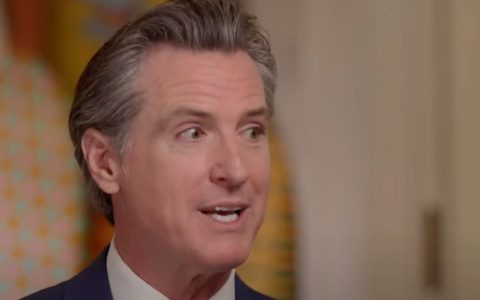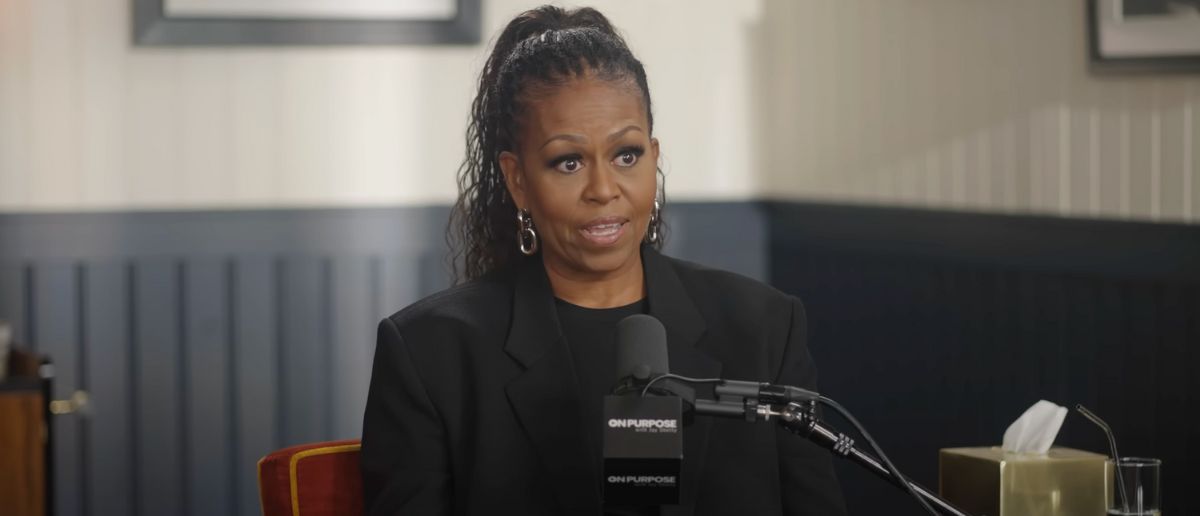
The Obama family’s been all over the news. Not for good reasons.
And now Michelle Obama’s just lost her mind on camera for all to see.
On a recent podcast showing, former First Lady Michelle Obama joined actress Julia Louis-Dreyfus to discuss the challenges women face in America, framing their experiences as uniquely burdened by societal constraints. Their conversation, hosted on IMO with Michelle Obama & Craig Robinson, leaned heavily into a narrative of female victimhood, suggesting men are oblivious to the systemic barriers women encounter.
Michelle Obama argued that women navigate a maze of restrictions and expectations, urging men—particularly those raising daughters—to acknowledge these disparities. She implied that societal norms inherently limit women, casting them as disadvantaged in ways men cannot comprehend without deliberate effort. Julia Louis-Dreyfus echoed this sentiment, lamenting outdated labels like “female doctor” that she believes diminish women’s professional identities.
Meanwhile, Democratic strategist James Carville, speaking on The People’s Cabinet, offered a counterpoint, criticizing Democrats for alienating male voters. He argued that rhetoric prioritizing women—such as slogans like “The future is female” or the #MeToo movement—has left men feeling sidelined, questioning their relevance in a party increasingly focused on female empowerment.
Carville’s remarks highlight a growing disconnect, suggesting that the Democratic Party’s messaging risks dismissing nearly half the voting population. He pointed to cultural tropes that elevate women as infallible, which he claims foster resentment among men who feel their struggles are ignored.
Elsewhere, former Ohio state Sen. Nina Turner, on 2WAY TONIGHT, drew controversial parallels between women’s rights in the U.S. and Iran, decrying male legislators’ influence over abortion laws. She expressed outrage at men dictating women’s bodily autonomy, framing it as a profound injustice, while clarifying her stance as pro-choice rather than pro-abortion. Turner’s comments point to her belief that women’s healthcare and economic challenges are exacerbated by male-driven policies.
This narrative, amplified by figures like Obama, Dreyfus, and Turner, paints men as either oblivious or oppressive, potentially deepening gender divides. Some argue this approach oversimplifies complex social dynamics, ignoring men’s own challenges and fostering a one-sided victimhood that may alienate broader audiences.
Obama Family Strife Making Headlines
Recent headlines and social media posts have cast a spotlight on the Obama family, suggesting cracks in their carefully curated public image. While Barack and Michelle Obama have long been portrayed as a model of unity, whispers of inner-family strife have emerged, particularly in 2025, fueled by speculative reports and critical commentary.
One prominent rumor, circulated on X, alleges that Michelle Obama hinted at marital strain during her podcast, IMO with Michelle Obama & Craig Robinson. Posts claim she leaned on her brother, not Barack, for support during their White House years, sparking speculation of distance between the couple. For instance, a post by @JesseBWatters on March 12, suggested Michelle was airing grievances about Barack’s interpersonal shortcomings, portraying him as out of touch.
Further fueling divorce rumors, Michelle addressed speculation in June, stating she and Barack are rarely seen together because “we’re 60, y’all.” Posts on X, including one from @nypost, interpreted this as a flippant dismissal of serious questions about their relationship. Critics, like @TimRunsHisMouth, called her response bitter, suggesting it reflects a deeper rift rather than a natural evolution of their marriage. These reactions frame the Obamas as hypocritical, preaching family values while allegedly struggling to maintain their own.
Another inflammatory claim linked the Obamas to Sean “Diddy” Combs’ controversial “Freak Off” parties. A post by @JDunlap1974 on November 15, 2024, alleged their involvement in scandalous events, tarnishing their reputation. While lacking credible evidence, such accusations contribute to a growing narrative of moral and personal failings, with critics using these rumors to question the Obamas’ integrity.
Michelle’s podcast comments have also drawn scrutiny for their tone and content. Her discussion with Julia Louis-Dreyfus about women’s societal barriers was criticized as divisive, with some arguing it unfairly vilifies men. James Carville’s remarks about Democrats alienating male voters resonate here, suggesting Michelle’s rhetoric risks further polarizing audiences. Critics see her focus on gender disparities as a continuation of a victimhood narrative that ignores broader social complexities.
The Obamas’ daughters, Malia and Sasha, have also faced public critique, though less directly tied to family strife. Malia’s career moves, including her work in television and her decision to drop “Obama” from her professional name, have been interpreted by some as attempts to distance herself from her parents’ legacy. While not explicit evidence of conflict, critics speculate this reflects underlying tension or a desire to escape the family’s public shadow.
Barack Obama’s own public statements have not helped quell rumors. His 2018 comments at an Obama Foundation event, where he implied societal issues stem from “racism and mommy issues” (widely seen as a jab at Donald Trump), were criticized as inflammatory and hypocritical, given the current speculation about his own family dynamics. Critics argue his moral posturing contrasts with the alleged personal struggles now surfacing.
Immigration policies under Obama’s presidency have also resurfaced as a point of contention, indirectly tied to family dynamics. Critics, including immigration activists, accused his administration of “tearing families apart” through deportations and family detention centers. A 2014 protest near the White House highlighted these policies, with activists arguing Obama’s decisions separated parents from children, contradicting his family-oriented image.
The Obama family’s public narrative has also been shaped by their handling of personal milestones. Michelle’s podcast revelation that she avoided discussing grades with Malia and Sasha to prevent comparison has been criticized as dismissive of academic accountability. Some see this as emblematic of a pattern of prioritizing image over substance, with critics arguing the Obamas craft a facade of relatability while shielding their true dynamics.
Comparatively, Barack’s presidency faced similar critiques of hypocrisy. His administration’s family detention policies, while less aggressive than Trump’s “zero tolerance” approach, drew protests for detaining families together, a practice critics called inhumane. These policies, detailed in a 2016 American Immigration Lawyers Association report, undermine Obama’s empathetic public persona, suggesting a disconnect between his rhetoric and actions.
Stay tuned to the DC Daily Journal.


